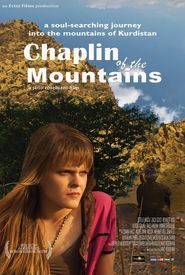Writer, Director, Producer, and Editor of numerous narrative features, documentaries, and series pilots, Rosebiani's work centers on cross-cultural, human rights, and gender equality themes, showcasing his passion for exploring complex social issues through the medium of film.
His film debut, "Dance of the Pendulum" (1995),is a parody of exploitation in Hollywood B-movies, offering a humorous critique of the film industry's tendency to sensationalize and trivialize certain themes. Shot entirely in the late Liberace's house in Studio City, California, this film sets the tone for Rosebiani's future projects, which would delve deeper into more serious and socially conscious topics.
One such film is "Jiyan" (2001),a groundbreaking project that marked the first time a feature film was made in the autonomous Kurdistan region. The movie tells the poignant story of the aftermath of the infamous chemical attack on the Kurdish town of Halabja in 1987, earning it the nickname "the Halabja movie." "Jiyan" received widespread critical acclaim, including four-star ratings from the Guardian and BBC World, and was nominated for the Tiger award at the International Film Festival Rotterdam.
Rosebiani's subsequent film, "Chaplin of the Mountains" (2013),was praised by New York Times Critics as the pick of the week during its USA theatrical run. This English language film, shot on location in the Kurdistan region, features a diverse cast of locals, Americans, and Europeans, marking a significant milestone in the region's film industry.
His 2014 film, "One Candle, Two Candles," tackles the sensitive topic of domestic violence in a patriarchal society, presenting a gripping confrontation between traditional values and modern ideals. This powerful drama was chosen by the HFPA for consideration as a Golden Globe candidate, solidifying Rosebiani's reputation as a masterful storyteller capable of tackling complex, socially relevant themes.



















